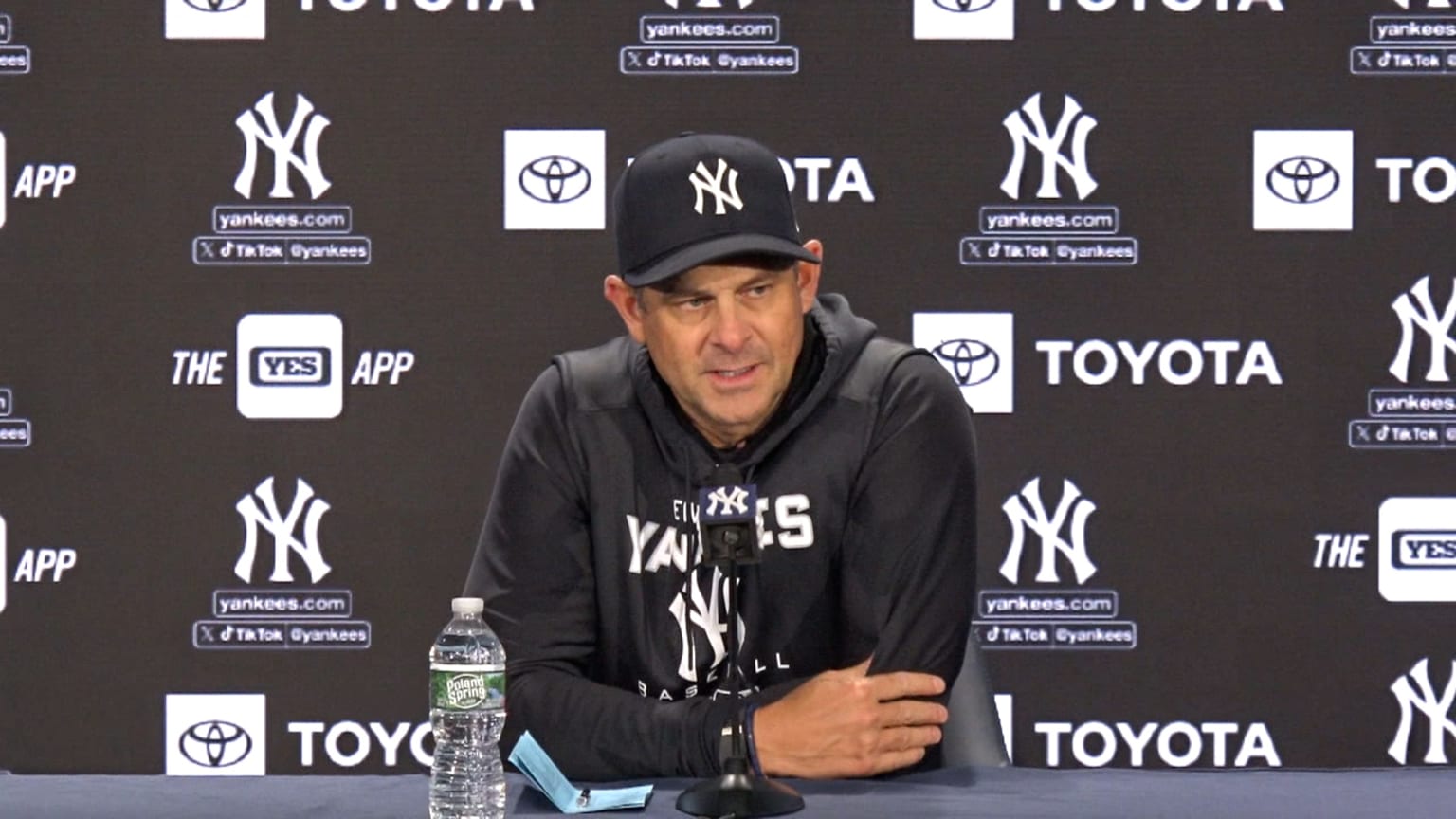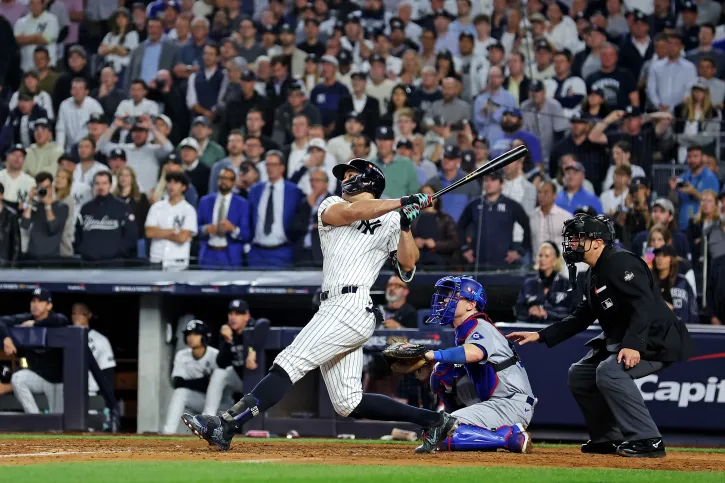Yankees’ Risky Pitching Choices Prove Costly in World Series Opener
In the highly anticipated 2024 World Series showdown, the New York Yankees faced a devastating loss to the Los Angeles Dodgers in Game 1, as bold bullpen decisions ultimately backfired, costing them a game that was within their grasp. The Yankees’ loss, ending in a tenth-inning grand slam by Dodgers’ star Freddie Freeman, not only underscored the intensity of the competition but also highlighted a series of critical managerial decisions by Aaron Boone that left fans and analysts questioning his bullpen choices.
With the game knotted up late, the Yankees found themselves in a familiar October scenario: playing a nail-biting match against a storied rival. The Yankees, who entered the series on the heels of a successful ALCS run, were looking to secure a crucial Game 1 victory to set the tone. However, the team’s success hinged on timely pitching choices—an area where Boone took calculated risks, intending to mix up the rotation and keep Dodgers’ power hitters off balance.
Throughout the regular season, Boone had been known for occasionally unconventional bullpen strategies, often relying on a mix of seasoned veterans and promising rookies to step up in tight situations. In Game 1, the stakes were higher, and Boone’s decisions drew both applause and concern. His choice to pull ace Gerrit Cole earlier than expected and hand the ball to Clarke Schmidt and rookie Luis Gil raised eyebrows, as both pitchers had experienced inconsistent results throughout the season. Boone’s approach, which favored calculated but untested matchups, sought to leverage favorable pitching matchups against Dodgers’ hitters but ultimately left the team vulnerable to an experienced and relentless Dodgers lineup.
As the game pushed into extra innings, the Yankees’ bullpen, already stretched thin from earlier pitching changes, faced pressure unlike any other they’d encountered. With runners on base and the Dodgers’ top lineup ready to swing, Boone brought in Schmidt, who had shown promise but was untested in high-stakes postseason situations. A series of tense at-bats ended with Schmidt walking key hitters, setting the stage for Freeman’s appearance. The Dodgers slugger, who had already made a mark in the postseason, stepped up with the bases loaded and, in a crushing blow for the Yankees, launched a grand slam to seal the game.
Freeman’s grand slam sent Dodgers fans into a frenzy and left Yankees supporters devastated, especially after such a competitive performance for the first nine innings. The outcome not only secured a 1-0 lead for the Dodgers in the series but also cast a spotlight on Boone’s bullpen strategy, with fans and former Yankees players like Derek Jeter and Joe Girardi questioning whether less risky choices might have yielded a better outcome.
Boone’s decisions are not new to criticism, particularly in high-stakes games where he has historically made unconventional moves to surprise opponents. However, Game 1’s collapse in extra innings has renewed debates over Boone’s approach. Both fans and commentators have voiced concerns, especially as veteran players like Cole, who could have gone deeper into the game, were sidelined in favor of less experienced arms.
Baseball analysts argued that while Boone’s plan might have worked in a regular-season game, the postseason demands a different approach. “It’s October baseball, and experience is key,” said one analyst. “Boone’s decision to rely on rookies and untested pitchers in this situation was a gamble, and unfortunately, it cost the Yankees.”
The Yankees now face mounting pressure as they prepare for Game 2. While Boone defended his decisions, stating that he believed in his bullpen and their ability to close the game, the outcome has left the team at a disadvantage. Looking ahead, the Yankees will likely reassess their bullpen strategy, potentially allowing seasoned starters more innings to avoid a repeat of Game 1’s outcome.
Despite the heartbreaking loss, the Yankees are far from defeated. The team has a history of resilience, and Boone’s bullpen gamble, though costly, highlights areas for improvement. Going into the next game, the Yankees might opt for a more conservative approach, ensuring that veterans like Cole and other seasoned players can extend their innings, especially in tight late-game scenarios. Game 1’s loss is a setback, but it also serves as a lesson for Boone and the Yankees on the importance of balancing risk with stability in the postseason.
As the Yankees look to Game 2, fans remain hopeful that adjustments in the bullpen approach could help the team rebound. For now, though, Game 1 stands as a reminder that while risks can pay off, calculated caution can be equally crucial, especially under the bright lights of October.






